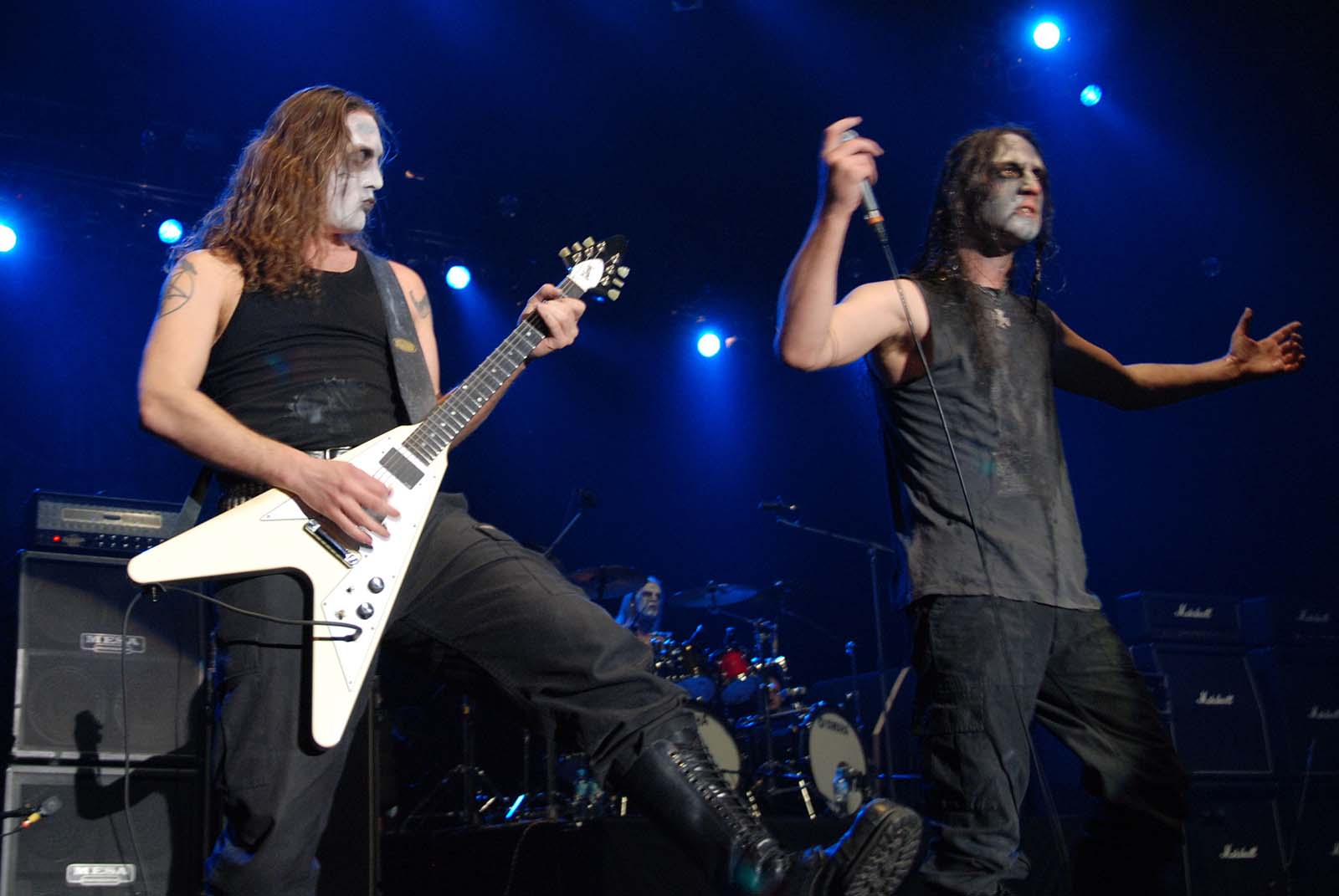
After so much ado, the controversial Marduk did not play in Bogotá. Photo: Wikicommons
Freedom is fundamental – not just something to be written down.
“Back to the middle ages” is how Under Threat guitarist Nicolás Bermúdez described the recent blocking of Swedish black metal band Marduk to me. Coming from the UK, it feels more like the 80s to me: we haven’t had a Satanic Panic for a long old while.
For those of you not following the extreme metal scene: Marduk were on a South American tour. They stopped in Colombia for gigs in Pasto (bizarrely) and Bogotá. Although the Pasto gig went ahead with a minimum of fuss, all hell broke loose in the capital when evangelical Christian nutjob councilman Marco Fidel Suárez went on the offensive, mobilising mass Christian opposition to the show. That led to the venue scheduled to host the gig being temporarily shut down on a bureaucratic technicality. A new venue was announced, only to be shut down in a similar manner.
The organisers worked night and day to organise a new venue, keeping the details secret and carefully hidden from the authorities, despite the fact that in principle they had the right to host the gig. Cometh the final hour, the band decided not to play for fear of reprisals. Note that there was no above-board, legal opposition, just threats and behind-the-scenes meddling.
Related: Oli’s big topic, society rules
It’s bizarre that it’s happening now: Bogotá hosts extreme black metal bands with openly anti-religious lyrics every month at least. Just a couple of months ago, Heljarmadr from Dark Funeral was stomping around the stage with an inverted cross at Rock al Parque. That went out on national TV.
Now, you don’t have to like Marduk to support their right to play. It’s true that some of their political stances are at best ugly and sometimes downright fascistic. However, this principle rises above whether what they say is sensible.
Colombia, technically, is a secular state. There’s a division between church and state that countries such as mine (the UK) still haven’t grown up and got done. You could be forgiven, however, for thinking that this is still a legally Catholic country. The Colombian police force still has ‘dios y patria’ on their shield, most of our public holidays are Catholic feast days and abortion remains mostly illegal.
But the dangers to free and open speech in Colombia are insidious. It’s not only about a legal challenge, but also snide, behind-the-scenes undermining. It’s true to say that there was no legal challenge to the Marduk concert, but the way in which the venues announced as hosts were shut down leaves a bad taste.
Here at The Bogotá Post we’ve had our share of problems with writing negative reviews. It doesn’t happen all the time, but there have been times when press passes are revoked, invitations to upcoming events are withdrawn and communication is shut down. It might not be so obvious as the cancellation of a concert, but it’s just as effective a policy. Ever wonder why you never see honest reviews? It’s just not a viable option for many journalists.
Of course that’s nothing compared with the people in Colombia who stand up for free speech are simply killed or threatened. This obviously isn’t legal, but given the impunity for those who carry out the murders and threats, it might as well be. Worse, the protection offered by the state is often non-existent or laughably minimal.
As is so often the case in Colombia, everything seems great on paper, but in reality, laws are circumvented, twisted or plain ignored in order to reach the right result for the powers that be. It’s the best of both worlds for the influential elites: they get to look progressive and modern; they get to violently repress those who stand against them.
That shouldn’t be acceptable in 2018. The rule of common law is what holds society together, what stops us falling into rule of the strongest. Colombia needs to decide whether freedom of speech is something it supports in name, or in action. Because the former, frankly, is not worth the paper it’s written on.





